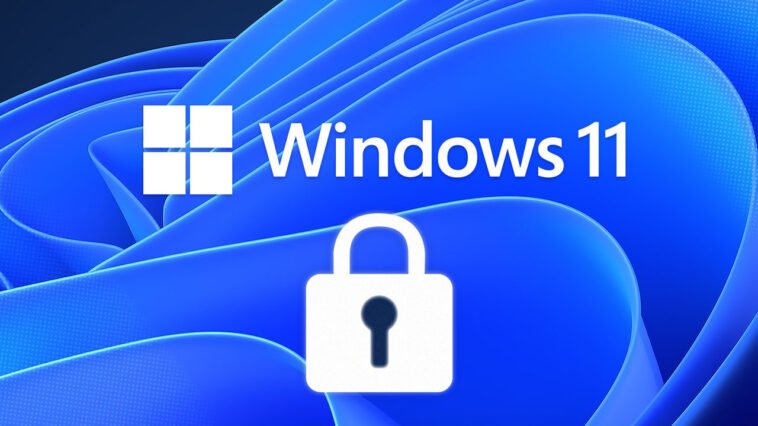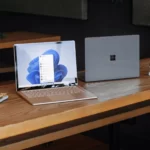In this article, we’ll dive into the Windows 11 Security, explore the potential risks, and discuss the steps you can take to safeguard your data. As we move into the era of Windows 11, one of the most pressing concerns for users is the security of their data. In today’s interconnected world, cyber threats are becoming increasingly sophisticated, and the stakes are higher than ever. With this in mind, it’s essential to examine whether Microsoft is doing enough to keep your data safe in Windows 11.
Understanding Windows 11 Security Features
Table of Contents
Windows 11 comes with several security features built-in to keep your data safe. Let’s take a closer look at some of them:
- Windows Hello: Windows Hello is a biometric authentication system that allows users to log in using their face, fingerprint, or PIN. This feature eliminates the need for passwords, which are often a weak point in any security system.
- Windows Defender: Windows Defender is an antivirus program that comes pre-installed on Windows 11. It provides real-time protection against malware, spyware, and other threats.
- Secure Boot: Secure Boot is a feature that ensures the operating system and its drivers are digitally signed by Microsoft before they are loaded. This feature prevents unauthorized software from running during the boot process, keeping your system safe from rootkits and other malicious software.
- Windows Sandbox: Windows Sandbox is a secure environment where users can run potentially harmful programs without risk to their system. This feature creates a virtual environment within Windows 11 that isolates any malicious software from the rest of the system.
- BitLocker: BitLocker is a full-disk encryption feature that allows users to protect their data by encrypting their entire hard drive. This feature prevents unauthorized access to data even if the device is stolen.
Potential Risks to Windows 11 Security
Despite the robust security features that come with Windows 11, there are still potential risks to your data. Here are some of the most significant risks:
- Phishing: Phishing is a type of cyber attack where scammers use social engineering to trick users into giving up their personal information. These attacks can come in the form of fake emails, social media messages, or websites.
- Ransomware: Ransomware is a type of malware that encrypts a user’s data and demands payment in exchange for the decryption key. Ransomware attacks are becoming more sophisticated and are a growing threat to Windows 11 users.
- Passwords: Passwords remain a weak point in any security system. Weak passwords, reused passwords, and passwords that are easily guessed are all potential vulnerabilities that hackers can exploit.
- Public Wi-Fi: Public Wi-Fi networks are often insecure and can be easily compromised by hackers. Users who connect to these networks are at risk of having their data intercepted and stolen.
Steps You Can Take to Safeguard Your Data

While Windows 11 comes with robust security features, there are additional steps you can take to safeguard your data. Here are some of the most important:
- Use a strong password: Use a strong and unique password for every account you have. Avoid using common passwords or passwords that can be easily guessed.
- Enable two-factor authentication: Two-factor authentication adds an extra layer of security by requiring users to provide two forms of identification to access their accounts.
- Keep your software up to date: Keep your operating system and all software up to date to ensure that you have the latest security patches.
- Be cautious on public Wi-Fi: Be careful when connecting to public Wi-Fi networks. Avoid logging into sensitive accounts or entering personal information when connected to these networks.
- Use a VPN: A Virtual Private Network (VPN) encrypts your internet traffic and protects your privacy when connected to public Wi-Fi networks. A VPN also helps to protect your data from being intercepted by hackers.
- Backup your data: Regularly backup your data to an external hard drive or cloud storage. This ensures that if your device is stolen or compromised, you can still access your important data.
- Educate yourself on phishing scams: Learn how to identify phishing scams and avoid falling victim to them. Be wary of emails or messages asking for personal information or containing suspicious links.
- Install reputable antivirus software: While Windows 11 comes with Windows Defender, it’s still a good idea to install additional antivirus software for added protection.
Read More:How to Fix Common Windows 11 Problems in Minutes
Conclusion
In conclusion, Windows 11 comes with several security features to keep your data safe, such as Windows Hello, Windows Defender, Secure Boot, Windows Sandbox, and BitLocker. However, there are still potential risks to your data, such as phishing, ransomware, weak passwords, and public Wi-Fi networks. By taking steps to safeguard your data, such as using strong passwords, enabling two-factor authentication, keeping your software up to date, being cautious on public Wi-Fi, using a VPN, backing up your data, educating yourself on phishing scams, and installing reputable antivirus software, you can help to ensure that your data remains secure on Windows 11.




